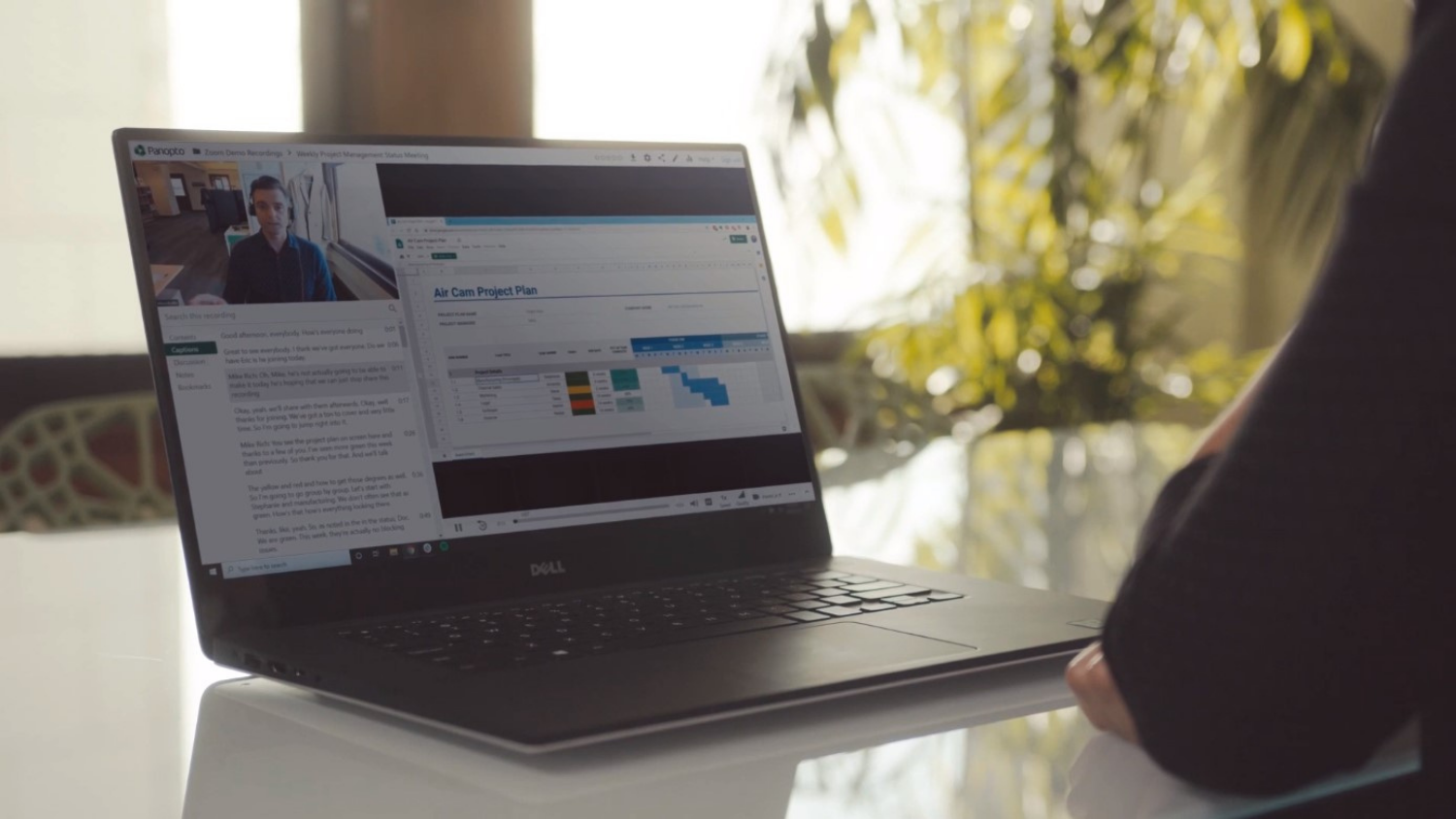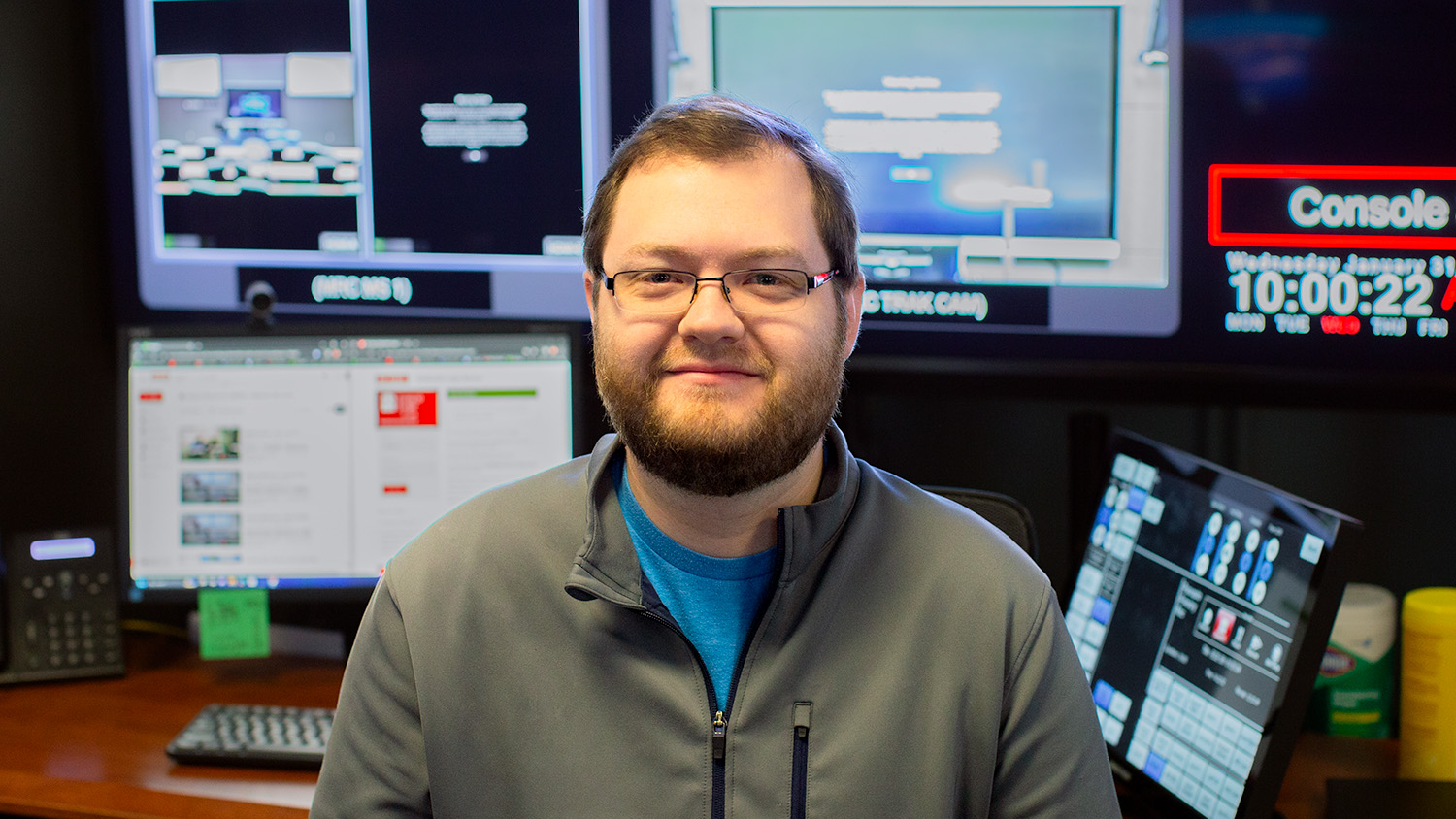Tenth Gertrude Cox Awards Recognizes Innovative Teaching with Technology
Seven N.C. State instructors received the Gertrude Cox Award for Innovative Excellence for Teaching and Learning with Technology on Wednesday, April 4, 2012. This event was held in the Talley Student Center as part of the Office of Faculty Development’s Teaching and Learning Symposium.
Staff and instructors got a chance to share and discuss their courses before the award ceremony. These courses were nominated by NCSU staff and faculty for their creative contributions to teaching, learning, and technology at NC State during the 2010-2011 academic year. An anonymous group of judges then selected the winners from 13 nominees.
The following people were presented with Gertrude Cox Awards:
- David Tarpy (College of Agriculture and Life Sciences)
- Shawn Dunning and Jon Rust (College of Textiles)
- Joan Eisemann and Sung Woo Kim (College of Agriculture and Life Sciences)
- Deena Murphy (College of Humanities and Social Sciences)
- Michael Kanters (College of Natural Resources)
This year, several DELTA team members and student workers were recognized for their contributions to these courses.
About the Award
First awarded in fall 2002, the Gertrude Cox Award is presented to faculty and staff to honor creative pedagogy and effective integration of new technologies into teaching strategies. The award recognizes the creative contributions to teaching, learning, and technology by members of the faculty at NC State University. Recipients of the award are determined through a peer-reviewed faculty process. Judging is based on the course’s effect on student learning, motivation, and creativity as well as the innovation’s impact on campus and beyond.
Find out more about the Gertrude Cox Award.
This year awards were given in two categories: the Awards for Innovative Excellence in Teaching with Technology and the Award for Excellence in Curricular Innovation Using Technology.
Innovative Excellence in Teaching and Learning with Technology
David Tarpy, associate professor of entomology and extension apiculturist, received an award for his course ENT 401: Honey Bee Biology and Management. This upper-level, DE course focuses on the biology of honey bees and provides an introduction to beekeeping. Students focus on the honey bee life history, development, and behavior to understand how colonies function. Inherent to the structure of ENT 401 is the Life Cycle Management Interactive Tool. This online interactive experience provides students with an in-hive, hands-on perspective through various demonstration videos, self-evaluation tools, and interactive exercises. This learning object ensures that all students, whether attending labs at the NCSU Bee Research Lab or working with mentors off-campus, would be exposed to the same content and best practices. With this tool, the student experience is non-linear and interactive, as students participate at their own pace, enter the interactive tool at various points, and incorporate content gleaned from other course lectures and materials.
See the nomination for ENT 401.
Read more about demonstration videos recorded for ENT 401.
Shawn Dunning and Jon Rust
Shawn Dunning, assistant dean for information technology and adjunct lecturer for Textile Engineering Chemistry and Science, and Jon Rust, department head and professor of Textile Engineering, received an award for the distance education version of TMS 211 – Introduction to Fiber Sciences. The online version of this foundation course seamlessly combines lectures and lab components.
The course material uses the Moodle Book feature, customized and styled for structuring and delivering content including: Articulate interactions, instructional graphics, custom graphics, Livescribe recordings, and animations. The course also integrates a Moodle glossary where words in content auto-link to glossary terms. Another key component of the course is the Virtual Viewer, an online microscope tool that simulates many of the capabilities of a compound microscope but also allows for side-by-side slide comparison. This gives students opportunities to simulate working with fibers under a microscope in a virtual environment.
The MicroExplorer 3D, an interactive animation, was developed to explain and identify the parts of the compound microscope and how to use it. The website and the mobile application include a 3D model of a compound microscope with photographs, video, and textual descriptions for each part.
The class also incorporates self-assessments, case studies, quizzes and instructional videos. By using media to better demonstrate detailed processes and successfully combining a lecture and a lab into a single distance education course, Dunning and Rust have created a highly interactive and engaging course.
See the nomination for TMS 211.
Read more the course development for TMS 211.
Joan Eisemann and Sung Woo Kim
Joan Eisemann, professor in the College of Agriculture and Life Sciences (CALS), and Sung Woo Kim, associate professor in CALS, received an award for their course, a distance education version of ANS 230 – Nutrition of Domestic Animals. Working with DELTA, Eisemann and Kim set out to create a single, shared distance education version of an existing course that is taught in alternating semesters. The primary objective was to create one DE course that faculty would share, ensuring consistent content for ANS 230.
To accomplish this, Eisemann and Kim divided content responsibilities, developed topics in Word, and reviewed each other’s writing to ensure all essential content was included in each topic. Collaborating with instructional designer Cathi Phillips, the final versions were incorporated into Moodle books and styled with a CALS-Abstract College Course Template.
Each Moodle book presents topic chapters that include introduction, learning objectives, keywords, content, activities, and summary. Activities include PowerPoint presentations, related website interactions, additional readings, and self-quizzes. Using the Highslide JS image viewer, students click small images embedded in content to view full-size images for detailed study. This course implements fascinating animations of challenging concepts like protein digestion and synthesis, which shows a keen awareness of topics are most challenging for students. Camtasia presentations, Moodle books and self quizzes also help students gain a firm grasp of the course material and a realistic assessment of their own learning.
See the nomination for ANS 230.
Read more about the animations created for ANS 230.
Deena Murphy
Deena Murphy, instructional and teaching professor Department of Interdisciplinary Studies and teaching professor in the Department of Interdisciplinary Studies, won for her work on WGS 210 Women and Gender in Science and Technology. This interdisciplinary course is an introduction to the reciprocal influence of scientific and technological research on contemporary understandings of women and men. The project to develop this course was funded through an IDEA Grant. Students explore how the social, economic, and institutional practices of scientific and technological research are shaped by the presence and absence of women. This course incorporates interactive lectures and readings but the real emphasis is placed on student participation. To facilitate this, the course uses a variety of discussion tools including: Moodle forums, VoiceThread, and Elluminate. Students are asked not only to participate in these discussions via text, audio, or webcam, but also to work in teams and lead a unit discussion themselves.
Some other features of the course include:
- An interview with the textbook’s authors
- A Vuvox interactive timeline
- Streaming video clips
Murphy and Ruth Smith were nominated for a World Technology Award in 2011 for their work on this course.
See the nomination for WGS 210.
Read more about the development of WGS 210.
Excellence in Curricular Innovation Using Technology
Michael Kanters
Michael Kanters, associate professor in the Department of Parks, Recreation, and Tourism Management, won for his leadership in the development of the online Professional Master’s degree program in Parks, Recreation, Tourism and Sport Management (online MPRTM). The degree is a 2-year program that follows the cohort model and is designed for working professionals. Dr. Kanters’ vision about how to develop the online MPRTM from the technology needs, to faculty training in delivering online courses, to Web design, to student orientation, is largely responsible for the early success of this degree program. Currently, 27 of the 30 students in the first cohort of the program are nearing graduation – an unprecedented success rate for an online degree program.
See the nomination for MPRTM.
Recognitions
In the 10th Annual Gertrude Cox award ceremony, the Office of Faculty Development acknowledged contributing teams for each course. Many of our own DELTA staff members were recognized for their contributions to the winning courses of 2010-2011:
- Amanda Robertson
- Ayanna Seals (student)
- Ben Huckaby
- Cathi Phillips
- Cleo Magnuson
- David Drews (student)
- David Howard
- David Tredwell
- Joe Lawson (student)
- John Gordon
- Jordan Deva (student)
- Mack Garrison (student)
- Megan Bickel (student)
- Meredith Laxton (student)
- Mike Cuales
- Rachel Lloyd (student)
- Ross Davidson (student)
- Ruth Smith
These individuals were presented with certificates recognizing their collaborative work in developing learning tools and materials that make up effective and challenging courses.
- Categories:


